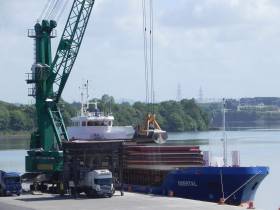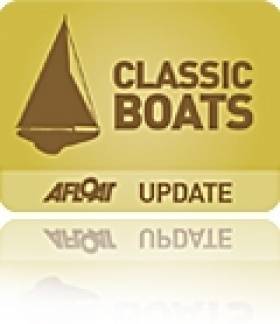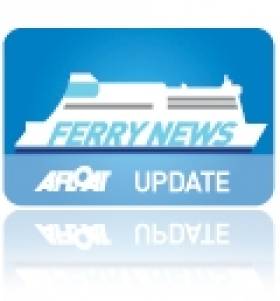Displaying items by tag: business plan
Port of Waterford Sets Out Business Plan on Bicentenary
#BusinessPlan - The south east Port of Waterford is to increase it's annual revenue by almost a third over the next four years, reports WLR FM.
The Waterford Harbour Board celebrated it's bicentenary this week with an event held in City Hall, during which the port's business plan for 2020 was revealed.
It sets out a strategy for growth at the Belview facility through a €7 million investment into capital projects, infrastructure and services.
Frank Ronan is CEO of the Port of Waterford Company says it's hoped that will yield an increase in revenue of €3 million over four years
#NaomhÉanna – Marine restoration specialists Irish Ship & Barge Fabrication Co in co-operation with the Naomh Éanna Trust's Save Our Ship (SOS) campaign group are to present a €1.86m business plan today to Heritage Minister, Jimmy Deenihan.
As previously reported on Afloat.ie, the minister had called for a 'concrete business plan' and today's presentation of the business plan will be using private funds to restore Ireland's oldest surviving merchant vessel, the former Aran Islands passenger, freight and cattle-carrying ferry.
The group need the minister to intervene and halt the scrapping by Waterways Ireland of the Liffey Dockyard ship completed in 1958 as the reprieve date expires next Monday, 31 March.
The plan was prepared in only 4 weeks and proposes a number of commercial activities on board the Naomh Éanna after restoration: a 82-bed boutique hostel, a 46-seat restaurant, an interactive museum and a micro-brewery plus a café seating 60 people.
Galway Port Company have offered a berth for the restored Naomh Éanna in which CIE had operated the 137ft vessel on the three-hour service to the Aran Islands until 1988. She then sailed to Dublin Port and in the following year she was transferred to the Irish Nautical Trust and berthed in Grand Canal Basin.
The plan describes how the vessel could be repaired in a dry dock in Dublin. Engineers are confident the antique machinery in the ship can be returned to service and the ship will return to her home city under her own steam.
Fastnet Line Closes For Good
#FERRY NEWS - The Fastnet Line ferry service between Cork and Swansea is to close with the loss of 78 jobs.
As previously reported on Afloat.ie, the operator had been in examinership since last November, and a restructured business plan had been submitted with a view to resuming high-season service in April.
However, in a statement the owners of the Fastnet Line said they had been unable to raise the €1m-plus investment required and that the examinership had "failed".
All 78 jobs will be lost as the company is set to be placed in receivership or liquidation later today.
The Fastnet Line - which was worth around €30 million to Cork in tourist spending - made its maiden voyage from Swansea to Cork in 2010, and was the only direct passenger and freight link between Wales and the south coast of Ireland.
The Irish Times has more on the story HERE.































































